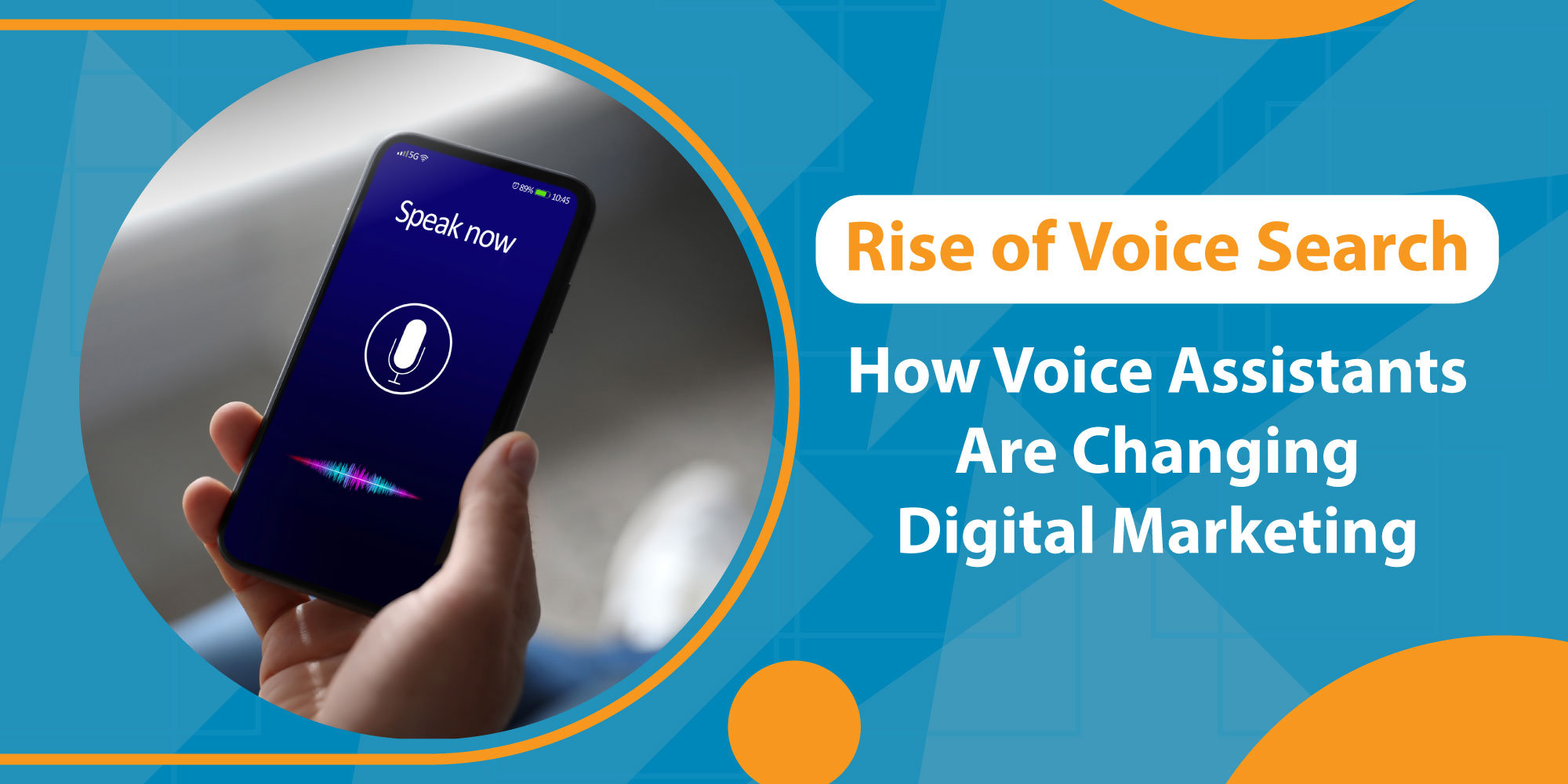Welcome to our blog! Today, we’ll explore the rise of voice search and its impact on digital marketing. We’ll discuss its effects on SEO, content strategy, brand voice, and the opportunities it presents for voice-activated advertising. Let’s dive into this fascinating topic!
In recent years, voice search has seen a significant surge in usage due to the growing popularity of voice assistants like Amazon’s Alexa, Google Assistant, Apple’s Siri, and Microsoft’s Cortana. This trend has revolutionized digital marketing, transforming the way people search for information, interact with technology, and engage with brands. In this blog post, we’ll examine how the rise of voice search is changing digital marketing and what businesses need to know to adapt to this trend.
The Growing Popularity of Voice Search
Advancements in natural language processing and widespread adoption of smart speakers and voice-enabled devices have contributed to the rise of voice search. Users can now easily perform voice searches on smartphones, smart speakers, smart TVs, and even in their cars. According to ComScore, it’s estimated that by 2023, over 50% of all searches will be voice searches.
The Convenience of Voice Search
One key reason behind the rise of voice search is its convenience. Voice search allows users to interact with technology more naturally and intuitively, without typing on a keyboard. Voice assistants can understand and interpret spoken language, providing quick and accurate answers to users’ questions. This convenience has led to a shift in user behavior, with more people relying on voice search for tasks like finding information, making purchases, setting reminders, and controlling smart home devices.
Impact on SEO and Content Strategy
The rise of voice search has significant implications for search engine optimization (SEO) and content strategy. Voice search queries tend to be longer and more conversational than text-based queries. Users often ask questions or use natural language when using voice search, so businesses need to optimize their content to align with these conversational queries. Long-tail keywords, question-based queries, and featured snippets are becoming increasingly important in voice search SEO.
Content should also be structured to provide clear and concise answers to users’ questions. Creating high-quality, informative, and conversational content that directly answers users’ queries can help businesses rank higher in voice search results. Additionally, optimizing for local search is essential, as voice searches often involve location-based queries like “near me.” Businesses need to ensure their local listings are accurate and up-to-date.
Importance of Brand Voice and Personalization
As voice assistants grow more sophisticated, they’re also developing unique brand voices. Brands need to consider how their voice assistants sound and interact with users, as this can impact brand image and customer perception. A consistent brand voice and personality across all touchpoints, including voice search interactions, are vital for a cohesive and memorable user experience.
Voice assistants can also personalize content and recommendations based on individual preferences and behaviors. This offers businesses the opportunity to deliver customized experiences through voice search interactions. By leveraging data and insights on user preferences and behaviors, businesses can create tailored content, offers, and recommendations that resonate with users, enhancing engagement and loyalty.
New Opportunities for Voice-Activated Advertising
Voice search presents new opportunities for voice-activated advertising. As users increasingly rely on voice assistants to make purchases or find information, businesses can leverage voice-activated ads to promote their products or services. Sponsored results or recommendations from voice assistants can drive brand awareness, consideration, and conversions. However, businesses must deliver relevant and non-intrusive ads that align with user intent and preferences to avoid disrupting the user experience.
Conclusion
The rise of voice search and voice assistants is indeed reshaping the landscape of digital marketing. To stay competitive, businesses must adapt their SEO strategies, content creation, brand voice, and advertising approaches to align with this evolving technology. By embracing these changes and capitalizing on the opportunities presented by voice search, businesses can better engage with their audience, enhance user experiences, and drive success in the ever-changing digital world.

 Linkedin
Linkedin


